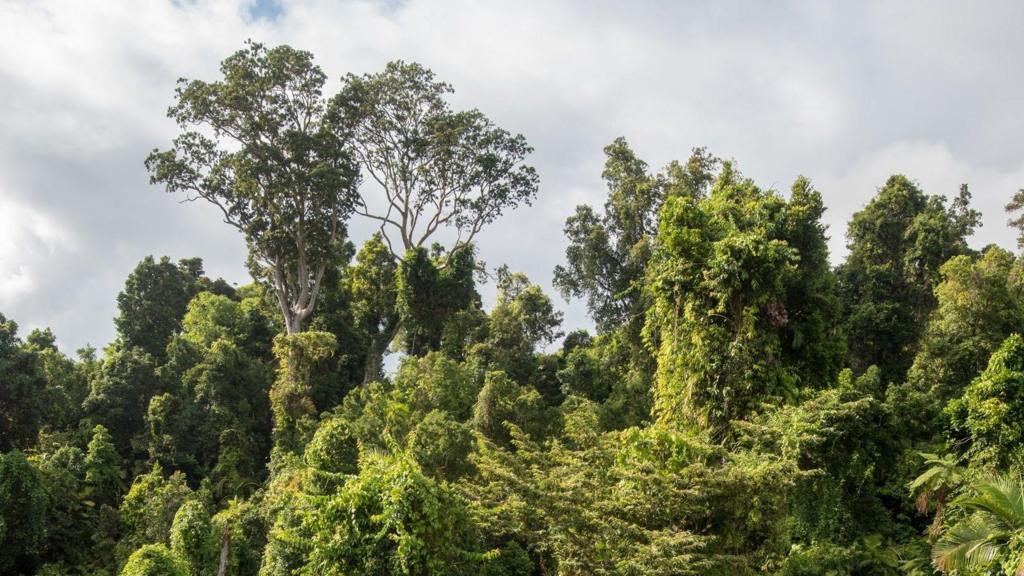“`html
A new study has revealed that Australia’s tropical rainforests are now emitting more carbon than they absorb, a global first attributed to the effects of climate change.
Typically, rainforests function as crucial “carbon sinks,” absorbing more carbon emissions than they release, with growing trees offsetting the carbon released by decaying vegetation.
However, research analyzing data from Queensland’s forests indicates that escalating temperatures have led to a higher rate of tree mortality compared to new growth.
The study’s lead author, Dr. Hannah Carle of Western Sydney University, whose findings were published in the journal *Nature*, emphasized the significant implications for global emissions reduction targets, which rely in part on the carbon absorption capabilities of ecosystems like rainforests.
“Current models may overestimate the capacity of tropical forests to help offset fossil fuel emissions,” Dr. Carle stated.
The report further indicates that the woody biomass – the trunks and branches of dead trees – shifted from being a carbon absorber to a carbon emitter approximately 25 years ago due to a decline in new tree growth.
“Forests play a vital role in mitigating the most severe impacts of climate change by absorbing carbon dioxide released from burning fossil fuels, but our work shows this is under threat,” Dr. Carle explained.
Dr. Carle attributed the increased tree mortality in recent decades to climate change factors such as more extreme temperatures, atmospheric dryness, and prolonged droughts.
Drawing upon 49 years of data from 20 forests in Queensland, the report also highlighted a rise in both the frequency and severity of cyclones, contributing to increased tree loss and hindering new tree growth.
“Our study provides evidence that Australia’s moist tropical forests are the first globally to exhibit this change in woody biomass,” Dr. Carle noted.
“This is a significant finding, potentially serving as a ‘canary in the coal mine’.”
Senior author Patrick Meir echoed these concerns, telling AFP that the results were “very concerning” and that it was “likely that all tropical forests [would] respond fairly similarly,” while acknowledging the need for further data and research for a comprehensive assessment.
Australia, a major per capita polluter, recently unveiled its new carbon reduction targets, committing to cut emissions by at least 62% compared to 2005 levels over the next decade.
The nation continues to face international scrutiny for its ongoing reliance on fossil fuels, with the government permitting the continued operation of one of the country’s largest gas projects, Woodside’s North West Shelf, for another 40 years.
Last month, a new report on the impact of climate change revealed that Australia has already experienced warming exceeding 1.5C, with no community being exempt from “cascading, compounding and concurrent” climate risks.
Fixtures, results and scorecards from India’s limited-overs tour of Australia, featuring three ODIs and five Twenty20 internationals.
Dairy farmers are facing milk price cuts while already counting the cost of a dry summer.
A resurgent Marnus Labuschagne scores his fourth century in five innings to further press his case for a recall to Australia’s side for the Ashes.
Homes asked to use less electricity as network is overloaded by the rush to wind and solar power.
The impact from the Rosebank oil field is estimated at nearly 250 million tonnes of planet warming CO2.
“`

